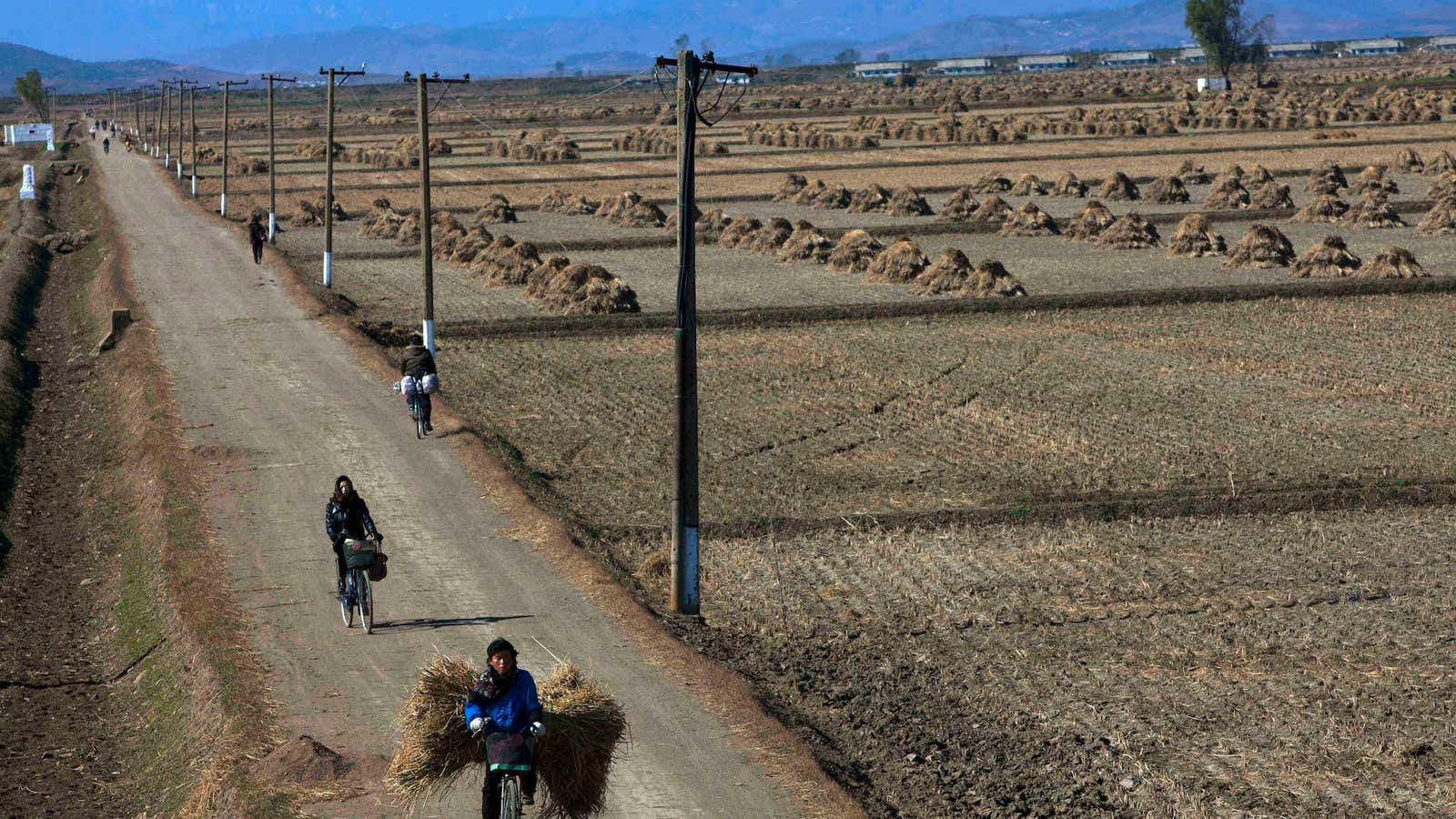Before it conducted its third nuclear test today, North Korea was looking like it had an outside chance of becoming the next frontier market for investors in natural resources.
The rogue state is sitting on an estimated $6 trillion worth of minerals. These are mostly rare earths, elements that go into high-tech products and are coveted by South Korea’s tech industry.
Back in January, North Korea’s pint-sized dictator, Kim Jong-un, looked like he was prepared to play nice with South Korea and, by extension, its Western allies. Kim called for the reunification of the two Koreas and reportedly began laying the ground for foreign investment.
But Pyongyang’s renewed agression against the US in the form of nuclear tests is spurring calls for tighter UN sanctions against North Korea.
The sanctions have already caused Western banks and miners to fear financing the nation’s resources industry. An American hedge fund manager who invests in Asian mining companies told Quartz, “We have a Mongolian miner in our portfolio that wants to go into North Korea. But their Western board members are against it.”
Still, sanctions may not be the answer.
Colin McAskill is a London-based consultant who formerly ran a North Korea-focused investment fund called the Chosun Fund, which closed because potential investors were concerned about breaking US laws forbidding them to do business with North Korea. McAskill is skeptical that these sanctions are productive.
“The current American policy is driven by fear that any money that goes into North Korea will be spent on weapons,” he says. “But Kim Jong-un has said he is focused on improving the lives of his people. And the only way he can do that is by feeding them. He wants investment and an end to sanctions.”
McAskill is certain that if the US encouraged investment into North Korea, the country would halt its nuclear testing.
“The latest test is a reaction to sanctions imposed by the UN,” he says. “If the US came out as willing to help the North Korean economy, and said ‘we are not going to oppose any civilized Western entity from investing in North Korea,’ the aggression would end.”
The alternative view is that the best solution to open up North Korea is by destabilizing Kim’s regime. Under this scenario, China could be persuaded to withdraw its support for Pyongyang based on its increasingly aggressive actions, as the New York Times outlined. A reduction in Chinese aid and investment, the Times writes, would “risk destabilizing North Korea, spurring its collapse and pushing the creation of a unified Korean Peninsula that could well turn out to be an American ally.”
That is a scenario Western investors might relish. As Quartz has outlined before, a unified Korea would open up opportunities for companies wishing to help the North develop its mines.
But it is also an outcome North Korea and China—which may not want a pro-US, reunited Korea on its doorstep—would challenge. Maybe a softer stance from Washington is the solution after all.
